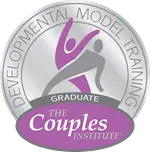I recently participated in a study regarding therapists’ opinions on whether clients should do their own research. The responses were overwhelmingly negative. Some clients have told me they are bipolar based on a YouTube video, but as long as they don’t take drastic action without first talking to a professional, I have no issues with this. Engaged clients tend to get the best results, which is a sign of commitment and that they care about their problems more than I do (as they should, and I would lose my mind if I took all couple’s problems as seriously as they do (but I take them very seriously)).
My doctor used to have a sign in his office saying he reserved the right to charge double for patients who wasted his time sharing information they found online. This is one of the main reasons I left him. The reality is that I may not be able to see my doctor for three or six months. I frequently educated him, and many of my best treatments have been from things I have found myself and then discussed with a professional. There is a lot of information on the internet, but sites ending in .gov, .org, or .edu tend to be reliable (especially if they are peer-reviewed and within the last five years). You can safely stay away from WebMD and Reddit. Using confirmation bias to try and find something to match what you already think should also be avoided.
I wouldn’t advise drinking bleach to fight COVID based on something on the internet, but clients have educated me on the effectiveness of somewhat rare conditions, such as couples where one person is on the spectrum and the other has ADHD. Many of the Gottman videos are on YouTube (not sure if legally), but it can be some of the same material I research. Many of their books are on Amazon and can be purchased by anyone (although most potential clients report that they still need a mediator, and it’s tough to replace face-to-face meetings).
My Advice Regarding Clinical or Mental Health Research
I advise reading what you want but holding off on acting until you talk to a professional. Even if I say the evidence does not support an article’s conclusion, it gives me insight into what is out there and helps me help my clients. Counselors rely on books from notable couples therapists, most of which are available at the public library.
Your problem may be too pressing to wait for an appointment, so I encourage clients to use the secure messaging function on the portal. If a counselor dissuades you from researching, that is a form of medical gaslighting that makes you feel crazy for looking for answers when no one else was giving them to you. They shouldn’t get mad at you for reading something if they didn’t make themselves available to tell you their perspective.
Many clients don’t have time or trust in their own research, so they go to counseling. That is great too. There is a lot to be gained from having face-to-face discussions (and it’s more efficient) instead of or in addition to research. So research away if you want to and it helps you. Send messages or wait for an appointment if you’d rather do that (or do a combination of all three).







